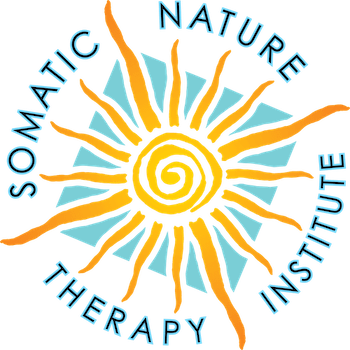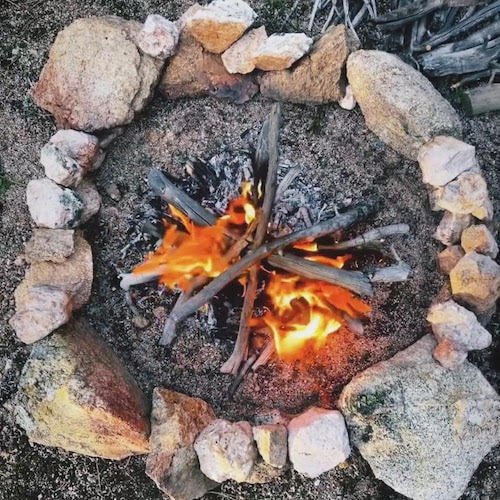
Ceremony And Rites Of Passage
Looking to Meaningfully Honor a Specific Life Transition or Milestone?
Change is inevitable, but how you deal with it makes all the difference. While some changes are planned, such as marriage or retirement, others, such as illness, loss, and trauma, are thrust upon us.
Big changes or life transitions can bring about intense feelings, spanning from excitement to uncertainty, and even anxiety about what lies ahead. Whether the transition is chosen or not, there is typically some amount of grief for what is lost or left behind. There is also often a period of instability and growth as we move into a new role, identity, or way of being.
Honoring your life transitions with reverence and intention can help you move through change with more connection and clarity.
The Somatic Nature Therapy Institute can help you create personally meaningful, culturally relevant ceremony, rituals and rites of passage that help you process loss, grief, and uncertainty, as well as celebrate joyful change and accomplishments.
What is Ceremony and Rites of Passage Work?
Ceremony is saying “yes” to what is. The intentional rite of passage process helps you to meaningfully mark the transition from one life phase to the next — whether that is a change from adolescence to adulthood, or that of a marriage, a divorce, graduation, new career path, new identity, or so many other inevitable shifts that occur in life.
When experiencing a significant life change, we can often feel overwhelmed and ungrounded. Ceremony is a way of embracing the unknown. Ceremony, ritual, and rites of passage have been used by cultures through time and across the globe as a way to celebrate as well as to heal — emotionally, spiritually, mentally, and physically. By creating a personal ritual, ceremony, or rite of passage that considers where you’ve been, where you are now, and where you are headed, you can consciously create a pathway to greater meaning and integration.
We offer ceremony and rites of passage guidance to anyone experiencing a life-changing event or transition. We work with you to help develop personally meaningful, culturally relevant ceremonies and rites of passage that honor your particular life journey and support your mind, body, and spirit to integrate change. This includes helping you navigate the liminal space between what you’re leaving behind and what is ahead. The process is always tailored to your unique cultural context, belief systems, and life transition.
We support individuals, couples, and groups celebrating new roles and identities, grieving what’s been lost, pausing to re-evaluate life, and more. We also train therapists, leaders, and healers in guiding individual and community rituals and rites of passage (visit our Ceremony and Rites of Passage Training page for more information).
Some examples of the life transitions that we’ve honored in custom ceremonies and rituals include:
● Grief and bereavement
● Marriage or commitment
● Birth/Welcoming a baby
● Sending a child to college
● Moving or leaving home
● Divorce
● Job change and retirement
● Navigating or coming out of illness
● Transitioning genders
● Celebrating an accomplishment
● Reclaiming life after trauma
If you are interested in honoring a life change in connection with nature, we also offer wilderness group quests—a rites of passage model—as well as customized individual quest creation (visit our Nature Quests page for more information).
What is the Process for Creating Ceremony and Rites Of Passage?
As we learn more about you and your specific life transition, we help you create personally meaningful, culturally relevant ceremonies, rituals, or rites of passage. The initial exploration phase will take place through online or in-person sessions.
Throughout the process we explore how you are experiencing the following aspects of change:
Severance –We ask, What is ending, dying, or no longer serving you in your life at this time? What are you letting go of, or preparing to release? Honoring the old and making room for your grief is essential to accepting and embracing new transitions, ways, relationships, and identities in life. Even if your change is a welcomed one, it’s important to acknowledge both the gifts and challenges of change.
Liminality – Here we consider, What questions are you holding about your life and new way of being? What is unclear? What are your values? What guides you? Who or what supports you in this time of change? What practices will help you navigate this time of transition and unknown as you traverse from an old to a new experience and identity? This exploration serves to normalize the challenges of being in the in-between realms, supports you to stay present in the unknown, and helps you continue to move forward when things feel overwhelming or unclear.
Incorporation – Here we explore the new identity, role or experience you are moving into. We inquire about the inner gifts, strengths, and capacities that you have discovered within this transition that will support you in stepping into a new phase of life.
After ongoing reflection, we help you identify a clear intention and design for your ceremony, which includes identifying symbols and symbolic actions that will help you honor the meaning of the life transition you are navigating. We’ll also help you identify who or what supports you in this transition, including family, friends, the Earth, spiritual beliefs, and more. We help you consider ways to weave these supports consciously into your ceremony or rite of passage, so you can feel your own belonging within a bigger web of life.
Depending on your goals and timeline, you will meet with your ceremonial guide over the span of a few weeks to several months to deepen your relationship with yourself, with your life change, and with what you’ll be honoring. Once you’ve created and enacted your ceremony or rite of passage, we support you in integrating the ceremonial intention into your life going forward. This could be through a single integration session, or ongoing mentoring, coaching, or psychotherapy if you wish to continue working with us following your ceremony.
Ceremonial Guides at the Somatic Nature Therapy Institute
While our team is made up of trained mental health clinicians, Western mental health treatment is not the core of our approach to creating ceremony, ritual, and rites of passage. Instead of pathologizing what is wrong (as often occurs in traditional Western psychology), we are more interested in what is right and what is possible. Though we certainly weave in our understanding of human development and healing, we view ourselves in this process as ceremonial guides rather than as therapists working from traditional psychological frameworks.
Our guides have decades of experience helping individuals and communities to create personally meaningful culturally relevant ceremony, ritual, and rites of passage locally and globally.
Our philosophy emphasizes the many interconnections within the web of life—the seen, the unseen, and what lies beyond—and invites all relevant spiritual and cultural beliefs. There is no one particular model we ascribe to, but our work is influenced by the School of Lost Borders, Animus Valley Institute, animism and ancestral work, deep imagery work, a lifetime of ceremony creation, and the teachings of Malidoma Somé, Francis Weller, and Daniel Foor.
We maintain culturally aware perspectives and consider the unique lineage, family history, spirituality, and community landscape of each and every client. Through our multilayered approach, we aim to guide people as they tap into and include every level of their minds, bodies, and souls, paving the way for feeling grounded, supported, and embodied as they move through change and life transition.

Take the Next Step with Purpose and Intention
Change, grief, uncertainty, and celebration are inevitable experiences and at the core of the human experience. Through ceremony, ritual, and rites of passage work, you can embrace and honor your own humanity and move consciously through this “one wild and precious life” (from Mary Oliver’s poem “The Summer Day”). For more information about how we can support you, contact us.


